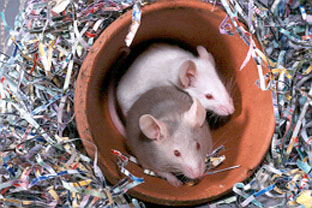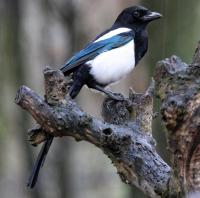- Home
- FAQs
- Customer Video Gallery
- Customer Photo Gallery
- Bird Facts
- Bird Food Blog
- Bird Information
- Feeding Advice
- Small Animal Information
- A to Z of Guinea Pigs
- A to Z of Hamsters
- A to Z of Rabbits
- Basic Care for Guinea Pigs
- Basic Care for Hamsters
- Basic Care for Rabbits
- Basic care for Chinchillas
- Basic care for Ferrets
- Basic care for Gerbils
- Basic care for Mice
- Basic care for Rats
- Buying a Healthy Small Animal
- Does your Reptile need a Licence
- Equipment for Ferrets
- Equipment for Hamsters
- Equipment for Mice
- Equipment for your Chinchilla
- Equipment for your Gerbil
- Equipment for your Guinea Pig
- Equipment for your Rabbit
- Keeping a House Rabbit
- Dog Information
- Cat Information
- Customer Information
- Fat Balls
- Suet Pellets
- Straights
- Seed Mixes
- Suet Treats
- Mealworms
- Bird Feeders
- My Account
Basic care for Mice
Mice can make great pets for people of all ages, as they are quick to tame, easy to care for and fascinating to observe.
Mice are social creatures who appreciate company but two females (does) make better cagemates than two males (bucks), who may fight upon reaching maturity at six to eight weeks of age. It is better not to house a buck and a doe together, unless you want to be overrun by millions of baby mice (pups)!
Housing and bedding
Tip: Mice are active and inquisitive, therefore the bigger the cage the better to allow them space to explore and play. The recommended minimum cage size for one or two mice is 30 x 20 x 20cm (approximately 12 x 10 x 10 inches).
Tip: Do not site your mouse’s cage near electrical appliances (televisions, computers, etc) as the noise these objects emit upsets small animals.
Grooming
Tip: Never pick up a mouse by the end of his tail. To do so will cause your pet great pain and also the end of the tail skin to come off. Instead, gently lift up your mouse by the base of his tail (where it joins the body) and support his body with your other hand.
Feeding
Twootz provides a Small Animal fruity mix which is an ideal food your mouse, it promotes health and well being and contains important vitamins and minerals essential for promoting good health.
Tip: Avoid feeding your mouse too many sunflower seeds and peanuts. Although mice relish them, these feedstuffs are high in fat and excessive amounts may lead to obesity.
Tip: Mice are not all that fond of cheese, although some like a tiny bit now and then as a treat.
Tip: Lettuce is not good for mice as it has no nutritional content and often causes diarrhoea.
Exercise
Tip: Hang treats and fresh fruit from your mouse’s cage to encourage him to work for his food
Health

Mice are social creatures who appreciate company but two females (does) make better cagemates than two males (bucks), who may fight upon reaching maturity at six to eight weeks of age. It is better not to house a buck and a doe together, unless you want to be overrun by millions of baby mice (pups)!
Housing and bedding
- Where mice are concerned you have the choice of purchasing a wire cage with a solid floor or an aquarium (fish tank) adapted to the needs of your pet
- There are many different types of wire cage available for housing mice, but as these little creatures can wriggle through tiny cracks and crevices it’s important to pick one with bar gaps of no more than eight millimetres
- Aquariums make ideal cages for mice as their chances of escape are reduced, providing the tank top has been substituted for a solidly constructed lid of small-gauge heavy-duty wire (chicken wire is too light to withstand persistent gnawing). While both types of housing are ideal, the wire cage is easier to clean out
- Unlike rats and gerbils, mice are not great burrowers so a shallow layer of litter, such as sawdust, clean shredded paper or wood shavings, is normally adequate. Peat is also an acceptable form of litter, especially if your mice react to the dust or phenol content in sawdust or shavings
- You should also provide a nesting-box containing material such as clean, fresh hay, cotton wool or those products specifically supplied for small rodents; avoid straw as its hard, spiky consistency may cause eye injuries
- Nesting-boxes minus lids are preferable so that their occupants do not overheat
- Mice are quite timid creatures by nature and to feel secure in their home environment require lots of hiding places; these can be supplied by providing plenty of bedding to burrow into and cardboard tubes from kitchen and toilet rolls to hide in
- Although thought of as being otherwise, mice are clean animals although bucks do produce a strong odour that some people find unpleasant. Their cage will require cleaning out once or twice per week; wash the litter tray with pet disinfectant to kill bacteria and neutralize nasty smells, then rinse well
- When changing bedding material, retain a little of your pet’s old nest to help him familiarise with his home
- Site your mouse house away from draughts and direct sources of heat, such as radiators and sunlit windowsills. Wherever you put the cage ensure that it cannot be knocked over and that young children or the family cat or dog won’t harass your pet
Tip: Mice are active and inquisitive, therefore the bigger the cage the better to allow them space to explore and play. The recommended minimum cage size for one or two mice is 30 x 20 x 20cm (approximately 12 x 10 x 10 inches).
Tip: Do not site your mouse’s cage near electrical appliances (televisions, computers, etc) as the noise these objects emit upsets small animals.
Grooming
- Mice generally do not require regular grooming as they spend a good deal of time keeping themselves spick and span. If you do wish to groom your mouse, use a soft toothbrush
- Although unnecessary from an appearance point of view, grooming your mouse may increase the bond between you
Tip: Never pick up a mouse by the end of his tail. To do so will cause your pet great pain and also the end of the tail skin to come off. Instead, gently lift up your mouse by the base of his tail (where it joins the body) and support his body with your other hand.
Feeding
Twootz provides a Small Animal fruity mix which is an ideal food your mouse, it promotes health and well being and contains important vitamins and minerals essential for promoting good health.
- Ready-mixed (complete) mouse food is available from pet stores and your pet will require approximately one teaspoon per day, with small amounts of fresh fruit and vegetables given as occasional treats
- The most readily eaten food mixes that contain all your pet’s dietary requirements are formulated from oats, corn, flaked maize and crushed dried peas
- Mice enjoy fresh fruit, such as apples, pears and tomatoes, and vegetables, including carrots, turnip, cabbage and cauliflower leaves
- Young grass shoots, dandelions and chickweed are also appreciated titbits that can be collected from your garden
- Fresh foodstuffs should be washed to remove dirt and traces of pesticide. Any fresh food left uneaten should be removed on a daily basis
- Provide food in a metal or earthenware bowl – one that cannot be tipped over easily
- A constant supply of fresh, clean water is best supplied by a gravity feed water bottle
Tip: Avoid feeding your mouse too many sunflower seeds and peanuts. Although mice relish them, these feedstuffs are high in fat and excessive amounts may lead to obesity.
Tip: Mice are not all that fond of cheese, although some like a tiny bit now and then as a treat.
Tip: Lettuce is not good for mice as it has no nutritional content and often causes diarrhoea.
Exercise
- Mice enjoy using exercise wheels, but ensure that you choose one of solid design; slatted wheels should not be used as your mouse’s tail may become trapped and damaged.
- Buy a large wheel so that your pet can comfortably use it and not be squashed or hunched up
- Cardboard tubes, rocks, deciduous tree branches (such as willow), ladders, upturned flowerpots and boxes will provide your pet with lots of objects to explore, play with and hide away in
Tip: Hang treats and fresh fruit from your mouse’s cage to encourage him to work for his food
Health
- Check your mouse daily for any signs of illness or injury, handling him gently to prevent him from becoming stressed. Something you’ll need to keep a close eye on is the state of his teeth
- A mouse’s teeth grow continuously and are normally worn down by chewing, however some animals may suffer from overgrown teeth and if this happens, preventing your pet from eating properly, you must consult your vet
- Providing mineral stones, wood gnaws and branches will help your mouse keep his teeth in good condition. Hard, stale, wholemeal bread is a food treat enjoyed by mice and nibbling it helps maintain their dental health
- Respiratory diseases may also affect mice who are kept in dirty, poorly ventilated accommodation, as a build-up of ammonia (gas given off by rotting faeces and urine) will damage the delicate lining of a mouse’s respiratory tract
- If you are in any doubt about your pet’s health always seek prompt veterinary attention




